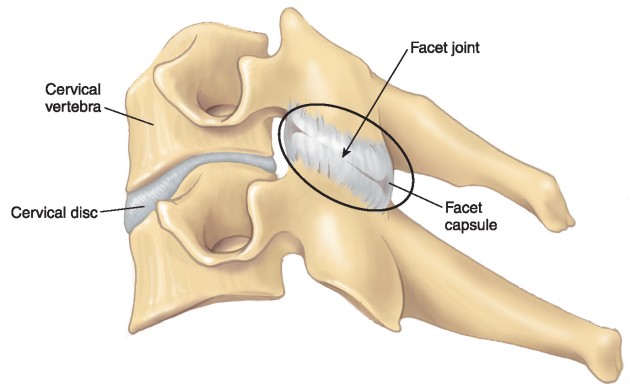
Facet Syndrome
Facet pain is chronic in nature and underlying causes are due to long term changes i.e. degenerative disc disease or osteoarthritis. Gymnasts and acrobats can also be prone to this type of injury due to the rigors of their sport.
Symptoms include severe spinal pain especially when moving and stiffness and limited motion. The pain will be worse when bending backwards or straightening back. If the facet syndrome affects the lumbar area, referred pain will be felt in the buttock, groin and thigh and down the sciatic nerve.
Diagnosis of facet syndrome is made by your G.P. or physiotherapist and you may be required to have an x-ray or MRI to confirm your specific condition.
Initially, treatment will be rest, but only for a short period. Physiotherapy will be encouraged as soon as possible. Your G.P. will probably advise anti-inflammatory medication depending on your past medical history.
A physiotherapist will help to improve and maintain flexibility and range of movement. They can also advise you on posture correction to relieve symptoms. Your physio may also perform acupuncture or, in severe cases, perform manipulation and spinal rotation. They may also advise you to use heat packs to relieve pain and muscle spasm. Always be careful when using heat therapy not to burn your skin. If physiotherapy alone does not work for you, you may be sent for a corticosteroid injection under radiography to help with pain relief.
Good posture can help prevent this condition and avoiding prolonged sitting or bending posture. See your local physiotherapist about good posture techniques for a healthy spine.
For more fun news click here.
Check out the news from our Interviews section, every Tuesday a new story! Tomorrow read about Mauro Berruto – “I like working with national team”.